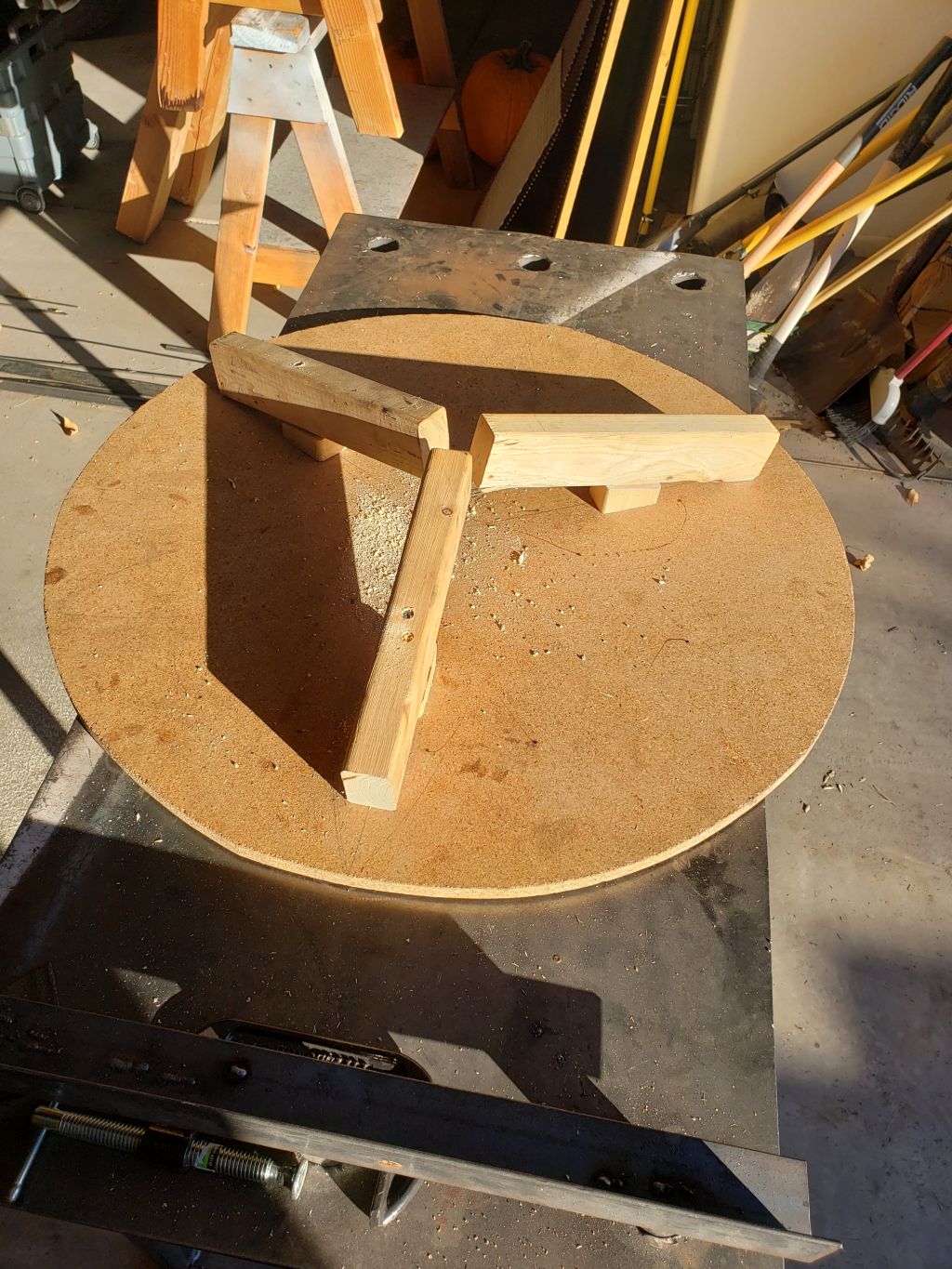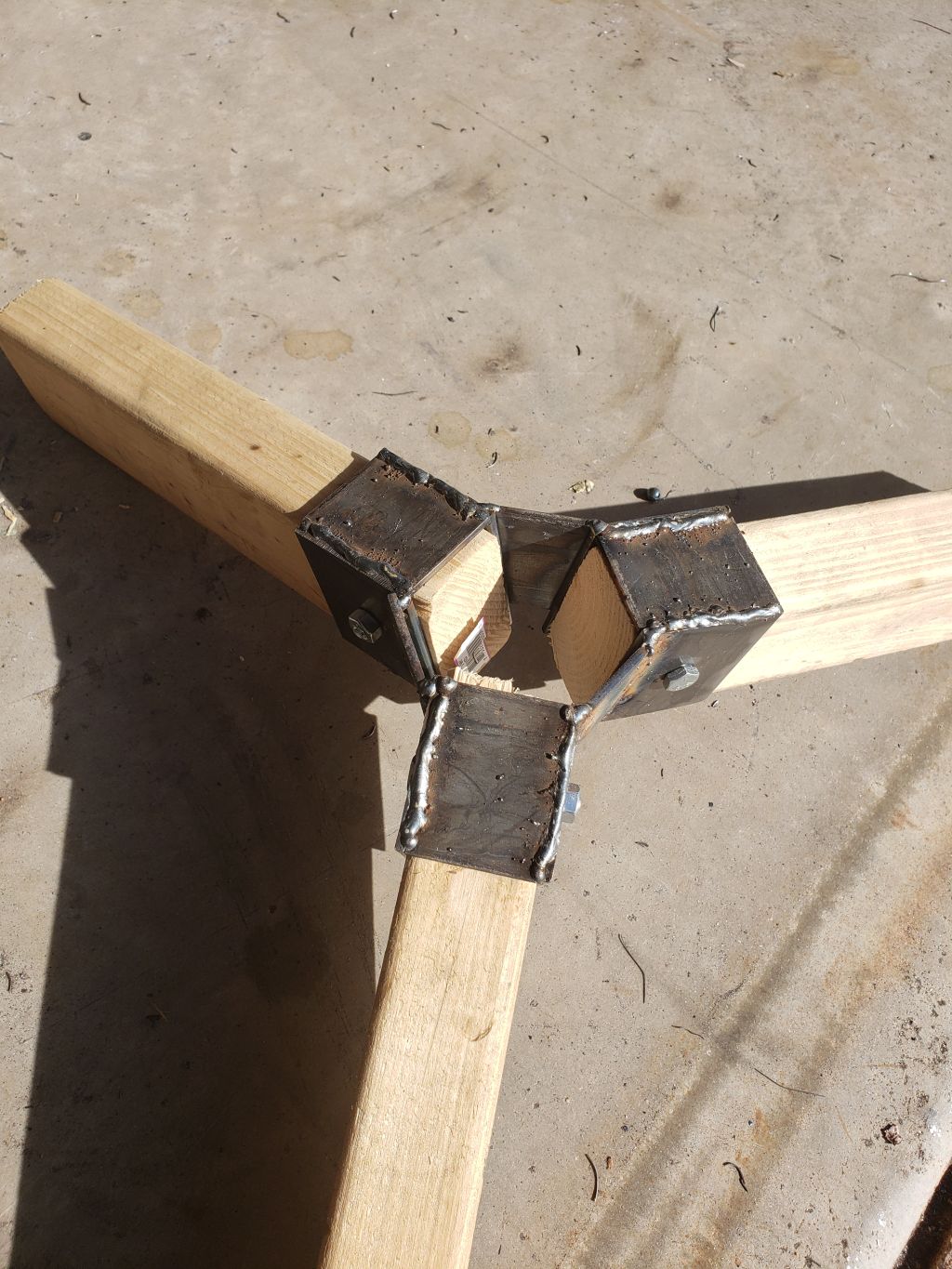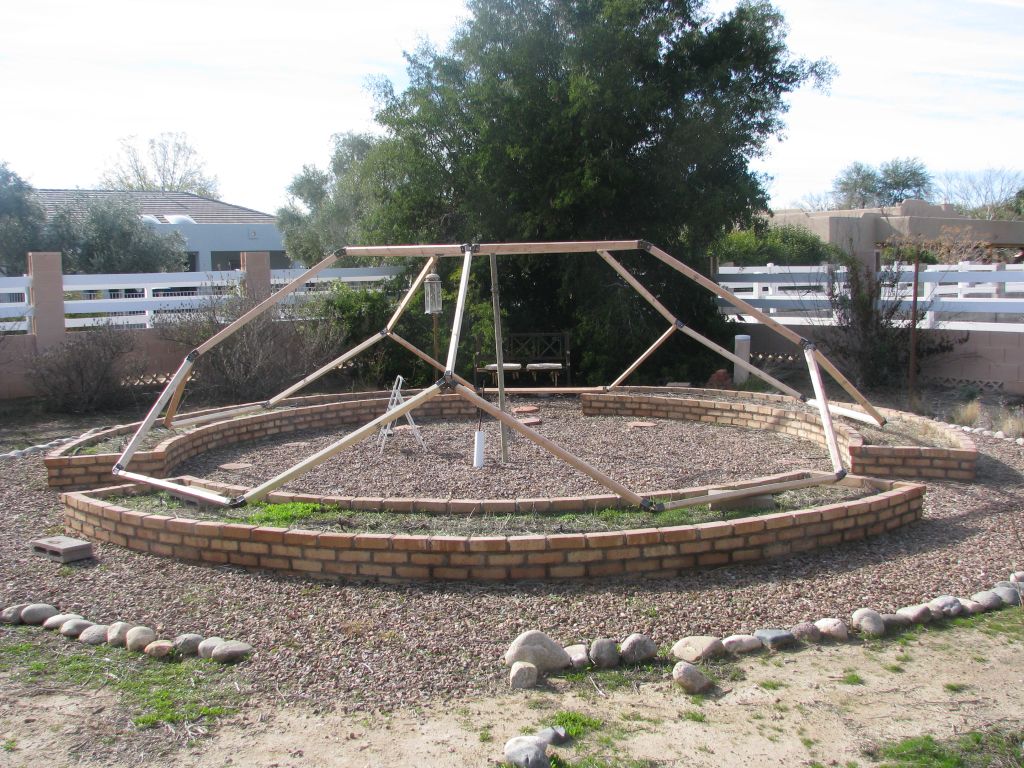Project begins: December 2019
My idea for the next project is a partial dome, sort of like an overturned satellite dish. I needed something for the garden to diffuse sunlight that was burning the vegetables during summer. After Project Sunburn failed to do this, I knew that I needed something far sturdier for a shade structure. Here is a rendering that I put together with Blender with what I had in mind.
The all wooden construction of the prototype turned out to be much too fragile to support the weight of the dome and survive the weather. This was likely due to the use of 1x1/2 strips with glue and screws, which evidently is woefully inadequate for the structural support that domes require. The weakest points were the hubs where panel corners connected. Therefore, I designed a hub jig from which to fabricate steel joints, then connect the hubs with 2x3 struts. The horizontal angles are all 120º to allow formation of hexagonal shapes. The vertical angle is 15º to allow for a 2V frequency. This allows fewer hub joints but forms a blockier-appearing dome.

This is the first hub joint fabricated. Turned out to be extremely sturdy, allowing me to stand on the top of the joint without collapsing.

There were several problems with this design. The first and most fatal to the design was the 120º angles. I mistakenly assumed that 120º made sense for what appeared to be interlocking hexagons. The truth is that this dome design consists of interlocking pentagons, which didn't appear obvious until I completed several hubs and nothing fit correctly. Therefore, I needed to change the hub horizontal angles to 108º with two 126º angles. This meant cutting all of the 120º hubs apart to reuse in the updated angle design. The updated hub hub jig allowed me to use the pieces salvaged from the previous design to use the correct angles.
The second problem was the 2V frequency.
- The mockup that I built in the garden turned out to be far too unwieldy for a 2V design
- The 15º vertical angle of a 2V frequency makes a shape more like a salad bowl than an inverted satellite dish
- The hexagonal sections were too big to make trellis inserts for

I pretty much terminated Phase 2 at this point because of all the problems. I have some possible solutions, which I will apply for Phase 3 (in progress).